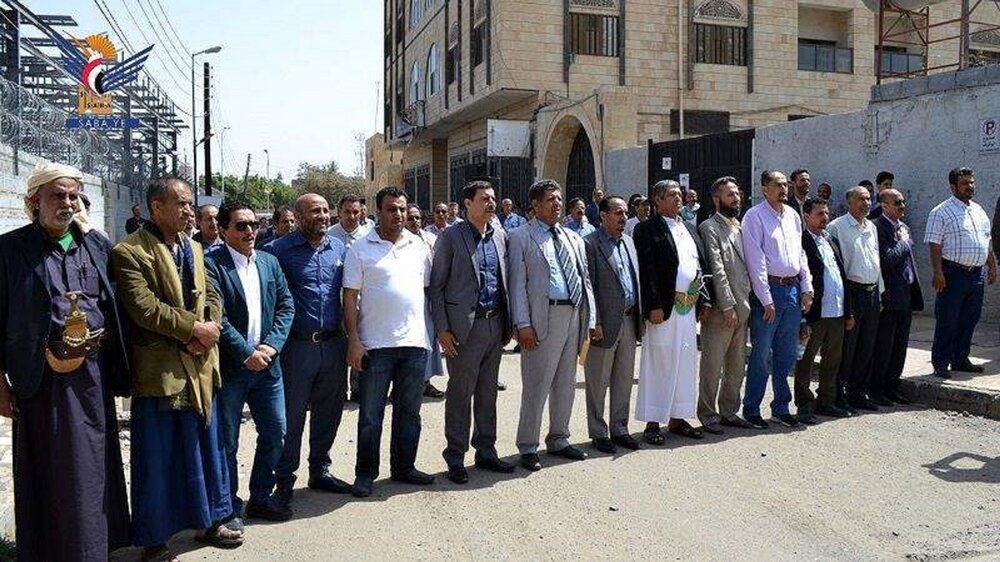Hawzah News Agency – The Yemeni Petroleum Company, YPC, renewed the warning of an impending humanitarian catastrophe, after the supply of fuel to the service sectors was stopped due to the continued detention of fuel tankers by US-Saudi aggression.
In a statement, that was issued in a protest in front of the United Nations office in Sana’a, the employees of YPC called on the international community and the United Nations to hold the US-Saudi aggression responsible for the piracy on fuel ships and preventing their entry to the port of Hodeidah.
The statement indicated that the suffering of the Yemeni People is aggravated due to the mercenaries of the aggression blocking roads for the locomotives loaded with fuel in their areas of control and preventing them from entering other governorates.
They pointed out that these practices have caused the prices of gasoline and diesel to rise to fanciful prices as a result of the levies that are added by the mercenaries of aggression, which are collected at their military points. The statement denounced the arbitrary practices of the countries of the aggression, led by USA, and their piracy on the ships of emergency fuel, denouncing the shameful international silence regarding the crimes, violations and suffering of the Yemeni people as a result of the shortage of fuel supplies and the cessation of most service sectors.
The participants in the protest condemned the aggression’s bombing of the Hodeidah facility, warning the aggression coalition against targeting the Yemeni Petroleum Company, its facilities, stations, and the stations of its agents.
The coalition of aggression continues to piracy, detaining fuel ships, and preventing them from entering the port of Hodeidah, despite obtaining permits from UN, which aggravates the humanitarian catastrophe due to the suspension of many vital service sectors, especially hospitals, electricity, water, cargo trucks, as well as waste trucks.
Since June 2020, the aggression and its allied government have continued to prevent fuel ships from entering the port of Hodeidah, except for a few ships that entered the port with a large time difference between each ship. Most of the ships left the place where they were being held by the forces of aggression, with their full cargo, after accumulating delay fines, exceeding the price of the cargo.
A suffocating fuel crisis in all governorates is experienced under the authority of Sana’a. Most of the important vital sectors, especially the health sector, are threatened with suspension, while work has been disrupted in many productive and service sectors, which caused economic losses of millions of dollars.
The fuel stations announced that their stocks of oil had run out. Hundreds of vehicles stood in long queues in front of these stations, hoping that shipments of oil would arrive in the coming days.
Meanwhile, representatives of commercial power stations told subscribers in several neighborhoods of the capital, Sana'a, that these stations will have to cut off the power for hours during the day and night, as a result of the lack of diesel running these stations.


Your Comment